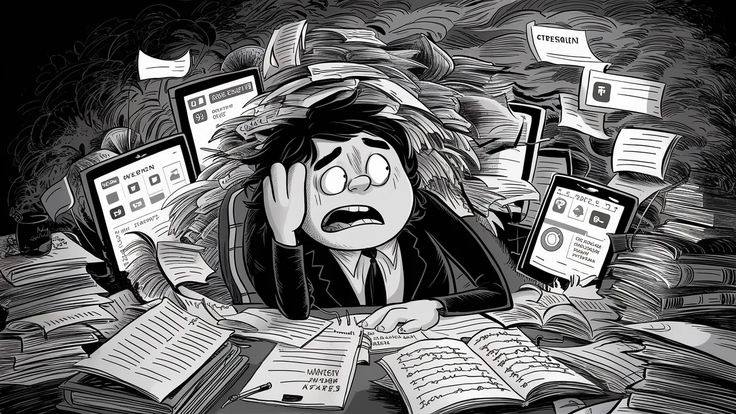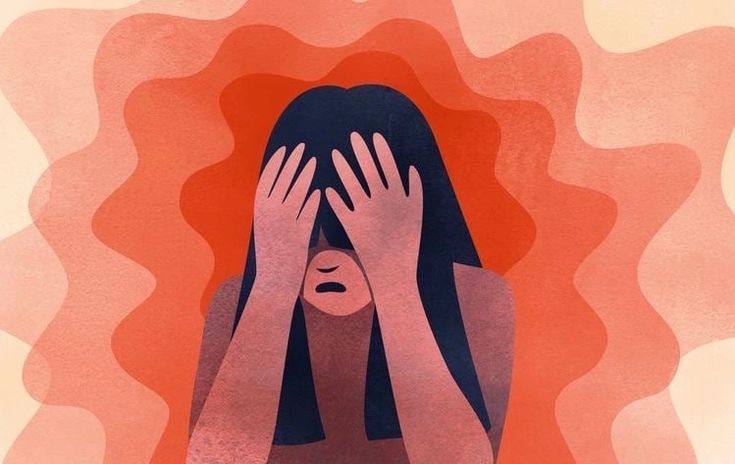Have you ever had a free day—no deadlines, no work, no urgent responsibilities—yet felt an uncomfortable weight of guilt for not “doing something useful”?
Instead of enjoying the moment, your mind spirals:
“I should be doing more.”
“I’m wasting time.”
“Why am I like this?”
If this sounds familiar, you’re not alone.
This experience has a name: Productivity Guilt—and it’s more common than you think.
What Is Productivity Guilt?
Productivity guilt is the nagging feeling of shame, worthlessness, or self-disappointment that arises during periods of rest or free time. It’s the internalized belief that if you’re not constantly achieving, you’re failing.
This guilt often comes with:
• Harsh self-talk
• Anxiety during downtime
• A constant need to “earn” rest
• Dissatisfaction even after completing tasks
It’s a byproduct of a culture that glorifies toxic productivity—where your worth is measured solely by output.
Where Does It Come From?
1-Cultural and Social Pressure
We live in a society where busyness is a badge of honor. Social media is flooded with success stories, hustle culture, and 5AM routines. Taking a break is often seen as laziness.
2-Perfectionism
Many people feel they must meet unrealistically high standards to feel worthy. Any downtime is interpreted as a failure to live up to those expectations.
3-Fear of Falling Behind
In competitive environments, rest feels risky. There’s an underlying fear that someone else is working harder while you’re doing nothing.
4-Self-Worth Tied to Productivity
When your identity revolves around being “productive,” any time not spent creating or doing something feels like you’re losing value as a person.
The Emotional Impact
Living with constant productivity guilt can take a toll on your mental and emotional well-being. Here are a few common consequences:
• Burnout: Pushing yourself to “do more” without breaks leads to emotional exhaustion.
• Low Self-Esteem: Believing you’re only valuable when you’re producing harms your sense of self-worth.
• Anxiety and Depression: Persistent guilt and dissatisfaction can trigger or worsen mental health conditions.
• Loss of Joy: Even leisure activities begin to feel stressful because they don’t seem “useful enough.”
Recognizing the Signs
You might be dealing with productivity guilt if:
• You feel anxious or guilty during rest.
• You avoid leisure activities unless they have a “purpose.”
• You constantly compare your output to others.
• You feel unworthy when you’re not working on something.
• You can’t relax without needing to justify it.
It’s Not Laziness—It’s Survival
Let’s be clear: taking breaks is not laziness. Rest is a biological, emotional, and psychological need.
Would you call a phone lazy for needing to charge?
Rest and recovery are essential for creativity, focus, emotional regulation, and physical health. Just like muscles grow during recovery—not just exercise—our minds need rest to process, grow, and reset.
Reframing Your Thinking
Here are practical ways to reframe your relationship with rest and productivity:
1-Redefine Success
Success isn’t just about getting things done. It can be:
• Saying no to burnout
• Spending quality time with loved ones
• Taking care of your body and mind
• Learning to be present without needing to “earn it”
2-Separate Self-Worth from Productivity
You are not your output.
You’re worthy because you’re human—not because you check off to-do lists.
3-Practice “Intentional Rest”
Give yourself permission to rest:
• Schedule it into your day.
• Name it: “This is my recharge time.”
• Be fully present during it without guilt.
4-Limit Comparison
Social media often only shows people’s highlights. You’re comparing your behind-the-scenes to someone else’s showreel.
Mute or unfollow accounts that feed your guilt.
5-Allow “Unproductive” Time
Play, wander, daydream. These aren’t wastes of time—they’re vital to your creativity and mental health.
Coping Strategies
Here are techniques to manage productivity guilt and avoid burnout:
▪️ Mindfulness Practice
Notice the thoughts without judgment.
Try: “I’m feeling guilty for resting, but that doesn’t mean I’m doing something wrong.”
▪️ Journaling
Ask yourself:
- What am I afraid will happen if I don’t stay busy?
- What would I tell a friend who felt this way?
- When do I feel most at peace?
▪️ Gratitude Lists
Shift focus from what you didn’t do to what you have.
Even if it’s:
- “I made my bed.”
- “I drank water.”
- “I gave myself a moment to breathe.”
▪️ Set Realistic Expectations
You don’t need to save the world every day. Sometimes, getting out of bed is enough.
When to Seek Help
If these feelings of guilt, self-hate, or dissatisfaction persist and interfere with your daily life, it may help to talk to a mental health professional.
You might be dealing with deeper patterns like:
- High-functioning anxiety
- Burnout
- Depression
- Imposter syndrome
Therapy can help unpack the roots of these emotions and offer tools to rebuild a healthier inner narrative.
You don’t have to earn your worth.
You don’t have to justify your rest.
You are allowed to exist without being “useful.” You are not a machine.
Letting go of productivity guilt isn’t easy—it takes time, compassion, and practice. But it starts with recognizing that rest is not the enemy—burnout is.
So next time you find yourself in a quiet moment, doing nothing, remind yourself:
“This moment is valid. I am allowed to just be.”






